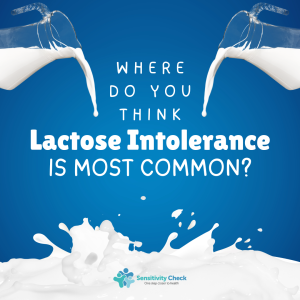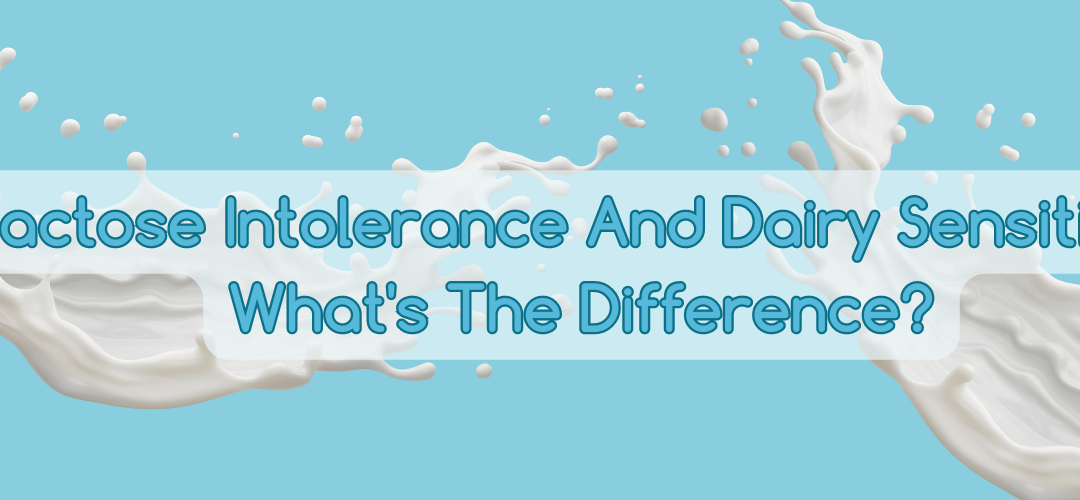Intolerance and sensitivities are not IgE-mediated conditions, meaning they don’t trigger the body’s immune system. Hence, these make them similar in some ways. These two also cause similar symptoms and can be hard to differentiate.
Lactose intolerance means that your small intestine produces insufficient lactase enzymes to break down lactose. This ends up causing you intolerance symptoms. On the other hand, dairy sensitivity means that your body is sensitive to all dairy forms and cannot digest them.
So, since both conditions involve intolerance or sensitivity, the terms lactose intolerance and dairy sensitivity are used interchangeably because they both lead to the definition that your body can break down some elements in dairy products.
Is dairy sensitivity the same as lactose intolerance?
Lactose is a sugar in milk and some dairy products. When you consume milk and other dairy products, your body breaks down lactose using the enzyme lactase produced in the small intestines. Most babies produce lots of lactase enzymes, especially if milk is a huge part of their diet. However, lactase enzyme production goes down once they start weaning and reducing milk consumption.
Sometimes the level of lactose enzyme production keeps going down as one grows older. This ends up causing an intolerance in the future. Often, people with the intolerance can tell you they were once able to digest lactose, then at some point, the body was unable to do it.
Intolerance symptoms are major in the digestive tract, including diarrhoea, gas, and stomach pain. It takes a few hours or minutes to develop these symptoms when lactose intolerant.
Dairy sensitivity, on the other hand, usually occurs when your body produces histamine due to the presence of whey or casein. Dairy sensitivity symptoms are similar to lactose intolerance, and it may take a few hours to days for the symptoms to appear.
The main difference between the sensitivity and intolerance is that an intolerance can be solved by taking over-the-counter lactase enzymes before consuming dairy products, eliminating your symptoms. However, regarding dairy sensitivity, you have to stop taking dairy products.
It’s necessary to note that since dairy sensitivity means a non-allergic reaction to dairy products, this particular intolerance falls under dairy sensitivity. Dairy sensitivity, including lactose intolerance, is more prevalent than dairy and milk allergy. The most common form of dairy sensitivity is lactose intolerance hence why it’s such a common term.
Symptoms of lactose intolerance and dairy sensitivity
Food intolerances and sensitivities often result in similar digestive symptoms. Common symptoms to observe for this intolerance and dairy sensitivity include:
- Abdominal pain
- Bloating
- Diarrhoea
- Gas
- Headache
- Joint pain
- Drippy nose
- Eczema
- Rashes
- Congestion
- Fatigue
The severity of these intolerance symptoms depends on how much lactose products you consume. The more lactose products you consume, the more your body has difficulty getting rid of it, which causes digestive symptoms that increase in severity as you consume more lactose products.
Lactose intolerance explained
Since it’s normal to lose the amount of lactase enzyme the baby produces as you grow up and rely less on milk, many people tend to develop lactose intolerance. It’s common for most people with the intolerance to develop it in adulthood. This particular intolerances prevalence varies depending on your location in the world.
This particular intolerance is more prevalent in North America and the Middle East. It’s, however, less common in either Western or Northern Europe.
Can you cure lactose intolerance?
Different reasons cause the development of lactose intolerance. If it’s a genetic issue, then it can’t be resolved. Resolving the intolerance means your body starts making more active enzymes, which it can.
However, there is hope for you if you have lactose intolerance due to underlying conditions like Crohn’s disease, bacterial overgrowth, intestinal infections, or celiac disease. When you’re battling these underlying conditions, treating them means that lactase production will start again, which will cause the intolerance to go away.
So the only case where the intolerance is treatable is when another disease causes it and has started developing on its own. The only way to treat genetic intolerances is by avoiding lactose products and taking a lactase pill when you can’t avoid lactose products.
How to find out if you’re lactose intolerant
Our upgraded test checks for lactose intolerance and milk-related intolerances at no extra price. This Ultimate Test will help you know what’s bothering you and why you have intolerance symptoms.
When you have a blood test, which we offer in this updated test, the test checks for a lactase-persistent gene that people with lactose intolerance have. This gene is an encoding for lactase enzyme. However, if it’s absent, you’ve probably already lost the ability to digest lactose due to genetic factors.
Managing the intolerance is quite simple. All you need to do is con use lactose-free products, which are easily available in grocery stores these days due to the emergence the intolerance. You can also manage the intolerance by always having a pill available to take when consuming dairy products.
Lactose intolerance only causes temporary symptoms. You won’t suffer from long-term permanent damage or inflammation. So, all you have to do is manage the symptoms momentarily and prevent them by avoiding dairy products or products with lactose.
Final thoughts
Lactose intolerance is a condition that falls under dairy sensitivity. It’s the most common dairy sensitivity that people suffer from. This condition also affects many people worldwide and is more rampant than milk or dairy allergy. Our upgraded Ultimate Test checks for lactose intolerance at no extra cost. With this test, you get tested for sensitivity to 975 food and non-food items. If you have a dairy sensitivity, eliminating those items from your diet or choosing lactose-free products will help you prevent symptoms.


